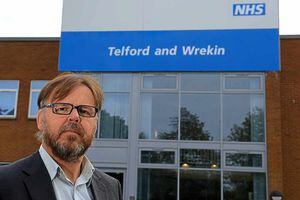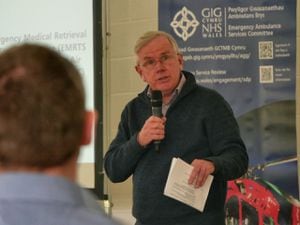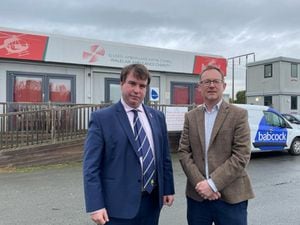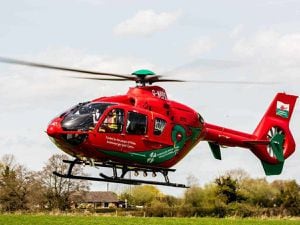Doctor shortage is 'leading to a crisis', says Shropshire health chief
A widening gap between the supply and demand for emergency doctors is leading to a crisis in A&E departments across the country, leading medics have warned.

The comments from the Royal College of Emergency Medicine come after a warning in Shropshire last month that staff levels were so low that one of the county's A&E units could close "imminently".
Speaking in July, David Evans, chief officer for Shropshire and Telford & Wrekin Clinical Commissioning Group said "remedial action" would have to be taken if staffing levels in the emergency wards were hit any further.
He said Shrewsbury and Telford Hospital NHS Trust now had just five A&E consultants between the Royal Shrewsbury Hospital and Telford's Princess Royal Hospital. The figure is way below the ideal level and the loss of one more consultant would trigger a closure of one of the units, it was warned.
The struggle to attract the right number of skilled staff is one of the arguments being given for plans to ultimately only have one emergency centre for the county, either at the RSH or PRH. That centre would be supported by a network of urgent care centres.
It emerged today that an A&E in the East Midlands announced it may have to temporarily close its doors at night because of a national shortage of emergency doctors.
Hospital bosses at Grantham and District Hospital announced that they were looking to reduce A&E hours because they were facing a "severe shortage of doctors".
United Lincolnshire Hospitals NHS Trust, which runs the A&E as well as two others in the region, said that it had been "seriously affected" by a "national shortage of appropriately trained doctors to work in A&Es".
In a statement it said: "We have reached a crisis point and we may put patients at risk if we don't act." Dr Clifford Mann, president of the Royal College of Emergency Medicine, said: "The great efforts made by doctors and nurses to help patients in under-resourced locations sometimes is not sustainable.
"As well as potentially putting patient safety at risk, placing an ever increasing workload on overstretched staff can create a vicious circle in retention and recruitment with many overworked trainees simply choosing to leave the country or indeed the specialty altogether.
"The wider picture is there is a real crisis in emergency medicine as our workforce numbers are not growing fast enough to keep pace with rising numbers of patients attending A&E departments."
Chris Hopson, who heads the trade association for acute, ambulance, community and mental health services, said the Government needs to put more money in or "honestly and openly" admit the consequences of "the longest and deepest financial squeeze in NHS history".





